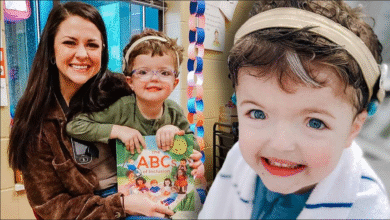Dismissed Nine Times: Georgia‑Leigh Gardiner’s Fight After a Terminal Diagnosis

In late December 2024, Georgia‑Leigh Gardiner, a 28‑year‑old resident of Leeds and devoted mother of a two‑year‑old son, began enduring alarming symptoms: intense abdominal pain, relentless nausea, frequent vomiting, and dramatic weight loss. Once a self‑proclaimed “massive foodie,” her body suddenly rejected nearly everything she ate. She described the pain as “sharp, constant” in her upper stomach—symptoms she hoped were temporary but that quickly spiraled into a health crisis.
Concerned, Georgia sought professional help. Between late 2024 and early 2025, she consulted her general practitioners between six and nine times, each appointment met with reassurance rather than action. Physicians prescribed lansoprazole for presumed heartburn, dismissing her more serious concerns . Despite her repeated pleas—expressing that she could no longer eat without vomiting and continued to lose weight—they initially responded with basic reflux treatments and no further testing.

Only after her symptoms worsened was she referred to the UK’s NHS Non‑Specific Symptoms Pathway, a stream designed for cases where cancer is suspected but not yet obvious. It wasn’t until she underwent an endoscopy in mid‑2025 that the cause was revealed: linitis plastica, a rare and aggressive form of stomach cancer. On June 13, 2025, at St. James’s University Hospital, she learned the cancer had metastasized to her lymph nodes and internal organs—and had already reached stage 4, meaning it was incurable .
Hearing the word “incurable”, she said, “In that room, my whole world crumbled.” Her fiancé, Callum, and she absorbed the crushing news that their hope for a cure was gone. Instead, Georgia now faces a limited time horizon—doctors estimate she has approximately one year left, given this cancer’s prognosis .

Stomach cancer, and particularly linitis plastica, is notorious for low survival rates—just 3–10% at five years—because it is often diagnosed after it has already spread . Georgia, once healthy and active, now confronts a harsh reality: chemotherapy may slow the disease’s progression, and she may qualify for clinical trials. But the focus has shifted from cure to making the most of the time ahead.
Georgia rapidly transitioned from patient to advocate. Determined to “fight this and make memories” for her young son, Arlo, and fiancé, she launched a GoFundMe campaign. Her priorities now center around family time: taking trips, capturing moments, and preserving memories for her child’s future. She remains resolute: “I’m young, I’m healthy… and I’m full of fight.” She is preparing for chemotherapy and keeps hope alive through potential clinical trials.

Georgia’s story highlights a dangerous pattern: symptoms like abdominal pain, persistent vomiting, and weight loss are all alarm signs of serious disease. Yet despite visiting multiple doctors, her concerns were downplayed, masked as simple heartburn, and treated with acid‑blocking medication. Underlying this mishandling is a systemic issue: doctors frequently underestimate gastrointestinal symptoms, especially in younger patients, leading to delayed diagnoses and diminished treatment options.
Medical experts emphasize that early detection is crucial. Gastric cancers like linitis plastica often begin with vague symptoms—heartburn, nausea, fullness—but can evolve rapidly within months. When alarm features such as weight loss, persistent vomiting, or unexplainable pain appear, swift investigation through imaging or endoscopy can make the difference between life and death.
Georgia‑Leigh Gardiner’s journey—from mild discomfort to devastating diagnosis—serves as a somber reminder: even with frequent doctor visits, serious conditions can be overlooked. Now confronting stage‑4 stomach cancer, her resolve is clear: to fight, to cherish, and to urge others not to accept dismissal. Her message resonates: listen to your body, trust persistent symptoms, and demand answers—your life may depend on it.




